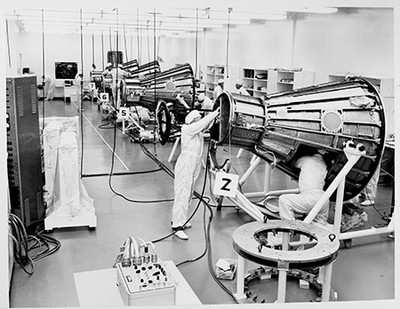Wed, Mar 02, 2011
Advertisement
More News
 ANN's Daily Aero-Linx (04.13.24)
ANN's Daily Aero-Linx (04.13.24)
Aero Linx: Florida Antique Biplane Association "Biplanes.....outrageous fun since 1903." That quote really defines what the Florida Antique Biplane Association (FABA) is all about.>[...]
 ANN's Daily Aero-Term (04.13.24): Beyond Visual Line Of Sight (BVLOS)
ANN's Daily Aero-Term (04.13.24): Beyond Visual Line Of Sight (BVLOS)
Beyond Visual Line Of Sight (BVLOS) The operation of a UAS beyond the visual capability of the flight crew members (i.e., remote pilot in command [RPIC], the person manipulating th>[...]
 Airborne 04.09.24: SnF24!, Piper-DeltaHawk!, Fisher Update, Junkers
Airborne 04.09.24: SnF24!, Piper-DeltaHawk!, Fisher Update, Junkers
Also: ForeFlight Upgrades, Cicare USA, Vittorazi Engines, EarthX We have a number of late-breaking news highlights from the 2024 Innovation Preview... which was PACKED with real ne>[...]
 Aero-News: Quote of the Day (04.14.24)
Aero-News: Quote of the Day (04.14.24)
“For Montaer Aircraft it is a very prudent move to incorporate such reliable institution as Ocala Aviation, with the background of decades in training experience and aviation>[...]
 ANN's Daily Aero-Term (04.14.24): Maximum Authorized Altitude
ANN's Daily Aero-Term (04.14.24): Maximum Authorized Altitude
Maximum Authorized Altitude A published altitude representing the maximum usable altitude or flight level for an airspace structure or route segment. It is the highest altitude on >[...]
blog comments powered by Disqus




